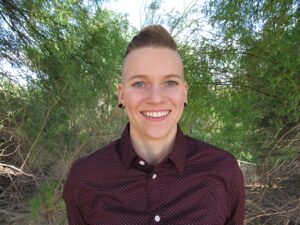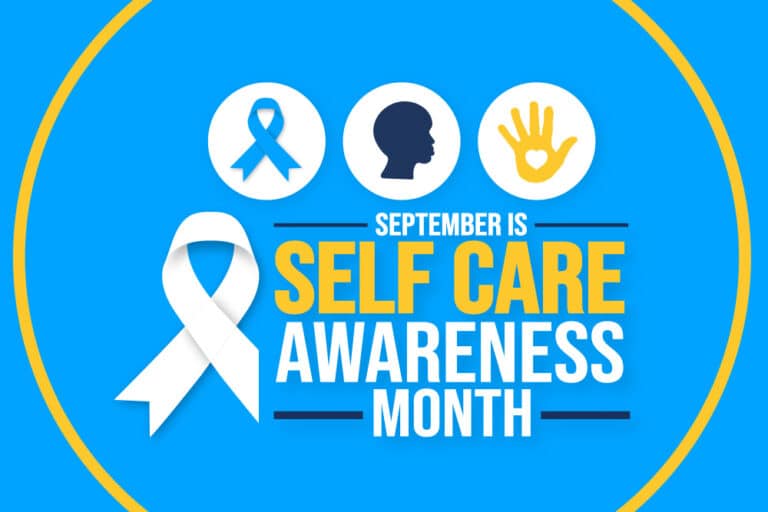Written by Kimberly Gledhill, MSW, the lead college counselor for Arizona College of Nursing, Tempe campus.
September is self-care awareness month, a reminder to prioritize health habits for physical and mental well-being. These healthy habits have been drilled into us: exercise, get enough sleep, and eat a healthy diet. But are there behaviors and habits that are self-sabotaging your ability to prioritize your health and wellness?
Whether you feel it in your head, stomach, shoulders, or chest, we all know the weight that stress can carry. As a higher education counselor who supports nursing students pursuing a demanding career, stress relief and self-care are common topics of discussion in my office.

Here are two sneaky stress starters and how to stop them:
The “Yes”
Every action comes with a choice – a “yes” or a “no.” While some choices elicit a more extensive cost-benefit analysis, others are simple. We say “yes” to completing necessary tasks to avoid consequences. But what about the “extra” choices? It can be easy to get caught up in a never-ending cycle of “yes.” Attempting to be supportive, collaborative, or to please others, we suddenly find ourselves overwhelmed with too many obligations to fulfill in a day. Saying yes causes us stress and does a disservice to those we are attempting to help. If we add too many things to our plate, the plate breaks and everything on it falls.
How to stop it
Practice consideration and boundaries. I am not suggesting that “yes” be omitted from your vocabulary or that you neglect necessary duties. However, if you identify that a significant cause of your stress is too much, “yes,” I challenge you to take a few extra minutes of consideration when given a choice. Ask yourself these questions:
- If I look at everything I must complete in this time frame, do I have enough time to do this?
- Will saying “yes” to this take away from my self-care?
- What are the benefits and challenges of saying yes?
If you cannot commit to an extra “yes” without compromising your mental health or the effort given to your obligations, set boundaries with yourself and others. It may not be easy initially, but setting boundaries can lead to healthier relationships, better decision-making, and improved wellness.
Procrastination
Procrastination is an easy trap to fall into – we anticipate that a task will take us two hours, so we wait until two hours before it’s due to start it. Planning the day and managing your time is an effective tool to complete tasks efficiently – waiting until the last minute to begin those tasks can cause stress in a couple of ways:
- We can become preoccupied with the task before even beginning it.
- We can become worried that we will not finish the task once we start it.
Chronic procrastination causes us to become caught in a perpetual cycle of feeling like we are “catching up.” While some work well under pressure, this constant tension of completing things just before the deadline can take a significant toll on our physical and mental health.
How to stop it

If you believe something may take an hour, give yourself two hours, just in case. A tip I always give my students is to allow 1-2 hours of “buffer time” at the end of each day. This is free time with nothing planned, so if something takes you longer than expected, you have extra time to complete it. If you complete the tasks early, you now have time to do what you enjoy, which helps you live well.
As you work towards recognizing and reducing your stress levels, have grace with yourself. None of us are superhuman – a finite number of hours in the day exists. Be realistic with yourself and have grace as you grow. If your stress levels are reaching an unmanageable level, formal support and resources such as therapy are available. Resources are available, and you are not alone.
Don’t let sneaky stress starters add additional anxiety that keeps you from taking care of yourself. Permit yourself to say no when your plate is already full. Give yourself a realistic amount of time to complete tasks. Practicing these habits means you have more time to practice self-care habits, and maybe you can fit in that massage after all!

Prior to joining Arizona College of Nursing, Kimberly provided therapy and case management to juveniles involved in foster care and the justice system. She has also collaborated with the Sheriff’s Department to provide therapeutic services and transitional care to those involved in the justice system. In addition to being highly skilled in support services for higher academia, Kimberly has developed training curriculum to promote cultural sensitivity and inclusivity of the LGBTQ+ community.
Kimberly obtained her Bachelor of Arts in Sociology with a Concentration in Social Work and Master of Social Work degrees from California Baptist University in Riverside, California. When she is not on campus helping students, she enjoys cooking and hiking.
Information in this blog post is accurate as of September 19, 2023.

